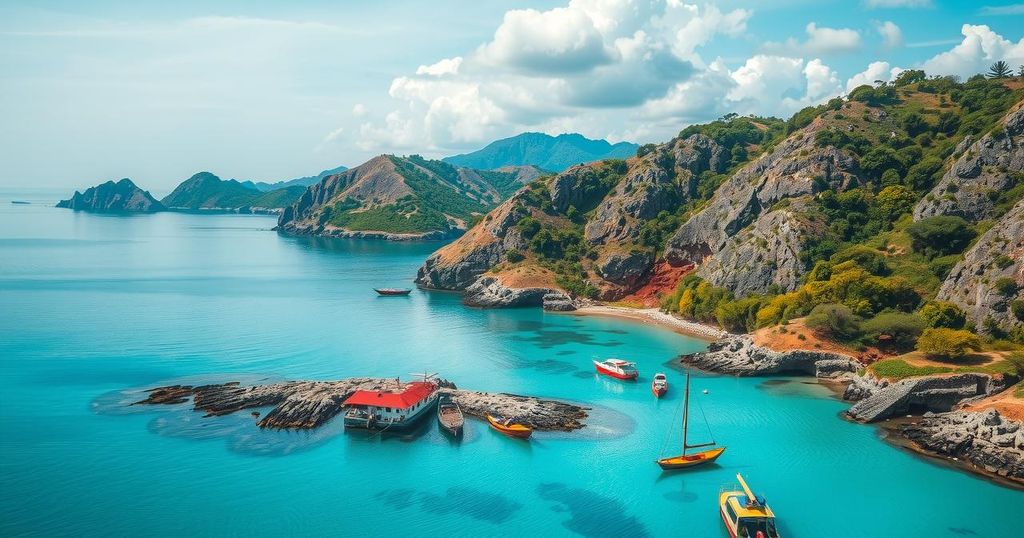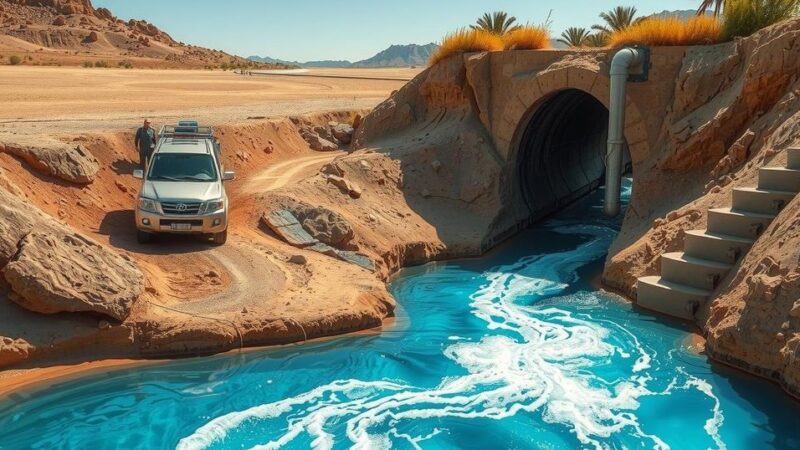Nigeria holds significant tourism potential with attractions like the Ado-Awaye suspended lake, yet struggles to attract visitors due to economic challenges, infrastructural drawbacks, and security concerns. Despite vibrant festivals and diverse ecosystems, visitor numbers remain low compared to competitors such as South Africa and Kenya. Experts call for government investment and cohesive marketing strategies to harness Nigeria’s tourism assets effectively.
Nigeria boasts unique attractions like the rare suspended lake at Ado-Awaye, yet struggles to harness tourism effectively. The lake, situated 433 meters above sea level, is steeped in local legend, said to bless visitors with fertility powers after a sorrowful tale involving a barren woman’s tale. Despite its appeal, Ado-Awaye only receives about 3,000 visitors annually, primarily religious pilgrims and hikers. Economic challenges have further impacted tourism, leading to a drop in attendance this year.
Despite its potential as a tourist haven, with vibrant festivals and stunning natural landscapes from the dunes of Yobe to the beaches along the Gulf of Guinea, Nigeria attracted only 1.2 million visitors in 2023—far lower than countries like South Africa and Kenya. The stagnation is attributed to infrastructure deficiencies, insecurity in certain regions, and a lack of cohesive tourism promotion. The hospitality sector suffers from inadequate accommodations, and the absence of integrated travel experiences leaves many tourist destinations underperforming.
While the Lagos Arena’s development and major events like “Detty December” are promising, they do not compensate for the overarching issues plaguing the sector. Experts emphasize the need for government investment in facilities and marketing to elevate Nigeria’s image and viability as a global tourism destination. There is a growing call for a strategic overhaul of Nigeria’s tourism framework, reflecting that areas rich in heritage and natural beauty are in dire need of attention and resources to thrive.
The article explores Nigeria’s potential as a tourist destination against the backdrop of current socio-economic challenges. The uniqueness of Nigeria’s natural features, such as the suspended lake in Ado-Awaye, is overshadowed by significant obstacles that hinder tourism growth, including poor infrastructure, insecurity, and ineffective marketing strategies. Various regions within Nigeria, adorned with cultural and natural attractions, remain underappreciated. The tourism sector’s struggles highlight a necessity for government intervention and public interest to revitalize and enhance the country’s appeal to both local and international visitors.
In conclusion, while Nigeria is rich in diverse tourist attractions with the potential to draw millions, its current tourism sector is stymied by economic and infrastructural challenges. To unlock this potential, concerted efforts are required from both the government and local communities to improve hospitality services, enhance security, and foster an engaging cultural narrative. Without changes in policy and investment, Nigeria risks losing out on the burgeoning global tourism market.
Original Source: www.theguardian.com






